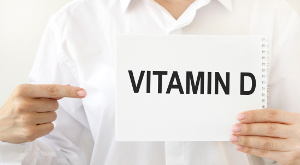 Most cells in the human body need vitamin D. The nutrient also has an important role in preventing symptoms and diseases that may occur after menopause – including osteoporosis, muscle weakness, dry mucosa, mood swings, cardiovascular disease, type 2 diabetes, and cancer. In an article that is published in Frontiers in Physiology, the authors address the widespread vitamin D deficiency that is an overlooked problem in post-menopausal women, and they suggest striving to have optimal vitamin D levels in the blood throughout life.
Most cells in the human body need vitamin D. The nutrient also has an important role in preventing symptoms and diseases that may occur after menopause – including osteoporosis, muscle weakness, dry mucosa, mood swings, cardiovascular disease, type 2 diabetes, and cancer. In an article that is published in Frontiers in Physiology, the authors address the widespread vitamin D deficiency that is an overlooked problem in post-menopausal women, and they suggest striving to have optimal vitamin D levels in the blood throughout life.
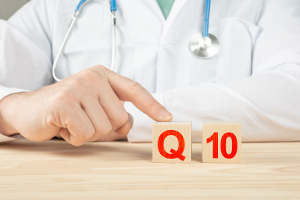 Q10 is important for cellular energy turnover, and it is also a powerful antioxidant that protects cells and the circulatory system. We synthesize most of our own coenzyme Q10. According to a new in vitro study that is published in Scientific Reports, commonly used medical drugs such as the bisphosphonates, alendronate and zoledronate, for treating osteoporosis block the body’s Q10 synthesis, thereby impairing the energy production in cells, the antioxidant defense, and other metabolic processes. Earlier research has shown that cholesterol-lowering statins lower the endogenous Q10 synthesis, causing side effects such as tiredness, aching muscles, and impotence. It may therefore be a good idea for patients on this type of medication to take a Q10 supplement to prevent or mitigate the adverse effects.
Q10 is important for cellular energy turnover, and it is also a powerful antioxidant that protects cells and the circulatory system. We synthesize most of our own coenzyme Q10. According to a new in vitro study that is published in Scientific Reports, commonly used medical drugs such as the bisphosphonates, alendronate and zoledronate, for treating osteoporosis block the body’s Q10 synthesis, thereby impairing the energy production in cells, the antioxidant defense, and other metabolic processes. Earlier research has shown that cholesterol-lowering statins lower the endogenous Q10 synthesis, causing side effects such as tiredness, aching muscles, and impotence. It may therefore be a good idea for patients on this type of medication to take a Q10 supplement to prevent or mitigate the adverse effects.
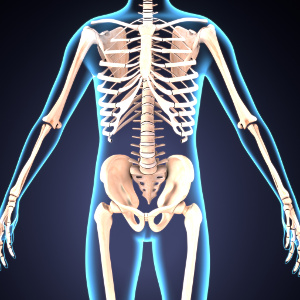 Vitamin C is important for bone density. A deficiency of the nutrient actually increases the risk of osteoporosis. Patients suffering from Crohn’s disease, ulcerative colitis, and other inflammatory bowel diseases often lack vitamin C and that adds even more to their risk. It is also a problem when normal, healthy people eat a vitamin C-deficient diet, and it becomes even more critical when people with chronic bowel diseases eat a diet with too little vitamin C. Vitamin C has a number of other functions in the body that are of importance to the immune system and the gut flora. Also, our genes for utilizing vitamin C play a role, according to a new study from Poznan University and Human Genetics Polish Academy of Sciences in Poland.
Vitamin C is important for bone density. A deficiency of the nutrient actually increases the risk of osteoporosis. Patients suffering from Crohn’s disease, ulcerative colitis, and other inflammatory bowel diseases often lack vitamin C and that adds even more to their risk. It is also a problem when normal, healthy people eat a vitamin C-deficient diet, and it becomes even more critical when people with chronic bowel diseases eat a diet with too little vitamin C. Vitamin C has a number of other functions in the body that are of importance to the immune system and the gut flora. Also, our genes for utilizing vitamin C play a role, according to a new study from Poznan University and Human Genetics Polish Academy of Sciences in Poland.
 Vitamin K occurs in different forms and has a variety of biological functions. A growing number of older people want to be able to manage on their own for as long as possible, which is why a team of scientists from Tufts University, USA, has taken a closer look at the risk factors that are known to impair mobility. The researchers discovered that lack of vitamin K is a serious problem. Other studies suggest that vitamin K deficiencies are quite widespread because older people tend to change their diet habits and use cholesterol-lowering medicine.
Vitamin K occurs in different forms and has a variety of biological functions. A growing number of older people want to be able to manage on their own for as long as possible, which is why a team of scientists from Tufts University, USA, has taken a closer look at the risk factors that are known to impair mobility. The researchers discovered that lack of vitamin K is a serious problem. Other studies suggest that vitamin K deficiencies are quite widespread because older people tend to change their diet habits and use cholesterol-lowering medicine.
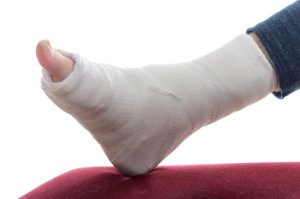 Lack of magnesium makes your bones weak. However, according to a study published in the European Journal of Epidemiology, if you increase your magnesium intake from food or supplements, you can prevent bone fractures, which is a common problem among middle-aged and old people. Although calcium and vitamin D are normally touted as being important for strong bones, it is equally important to get enough magnesium and to generally be aware of factors such as diet, medicine consumption, and lifestyle, all of which can deplete levels of this essential mineral.
Lack of magnesium makes your bones weak. However, according to a study published in the European Journal of Epidemiology, if you increase your magnesium intake from food or supplements, you can prevent bone fractures, which is a common problem among middle-aged and old people. Although calcium and vitamin D are normally touted as being important for strong bones, it is equally important to get enough magnesium and to generally be aware of factors such as diet, medicine consumption, and lifestyle, all of which can deplete levels of this essential mineral.
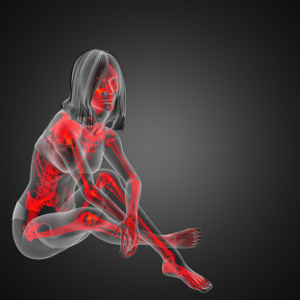 Calcium and vitamin D normally get all the attention when it comes to bone health. However, magnesium also plays a crucial, but often overlooked, role. This was demonstrated in a large population study that is published in Frontiers in Nutrition. The study links lower dietary magnesium to a greater risk of developing osteoporosis, especially for women aged 55 years and older. Osteoporosis normally takes many years to develop so it is vital to get plenty of magnesium from the diet or from supplements. Also, beware that excessive calcium intake, antacids, and diuretics block the body’s ability to absorb and utilize magnesium.
Calcium and vitamin D normally get all the attention when it comes to bone health. However, magnesium also plays a crucial, but often overlooked, role. This was demonstrated in a large population study that is published in Frontiers in Nutrition. The study links lower dietary magnesium to a greater risk of developing osteoporosis, especially for women aged 55 years and older. Osteoporosis normally takes many years to develop so it is vital to get plenty of magnesium from the diet or from supplements. Also, beware that excessive calcium intake, antacids, and diuretics block the body’s ability to absorb and utilize magnesium.
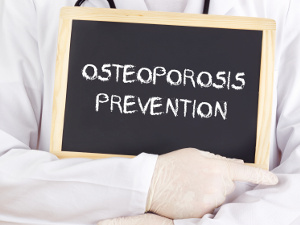 Vitamin D is important for cellular calcium uptake, bone health, and a number of other functions. There is also a direct link between the widespread vitamin D deficiency problem and brittle bones and osteoporosis among post-menopausal women, according to a large Chinese study that is published in Frontiers in Nutrition. It is important to include magnesium and vitamin K2, as they also contribute to bone health.
Vitamin D is important for cellular calcium uptake, bone health, and a number of other functions. There is also a direct link between the widespread vitamin D deficiency problem and brittle bones and osteoporosis among post-menopausal women, according to a large Chinese study that is published in Frontiers in Nutrition. It is important to include magnesium and vitamin K2, as they also contribute to bone health.
 There are several kinds of vitamin D with the two most important being:
There are several kinds of vitamin D with the two most important being:
- D2, ergocalciferol, that is found naturally in the plant kingdom.
- Vitamin D3, cholecalciferol, that is found naturally in the animal kingdom.
Humans synthesise vitamin D (cholecalciferol) from sunlight (UV-B rays) and a cholesterol compound in the skin, which is converted to active vitamins by means of processes in the liver and kidneys. We humans are only able to synthesise vitamin D during the summer season when the sun is high in the sky. Excess amounts of the nutrient are stored in the liver for future use. Light skin produces substantially larger amounts of vitamin D than dark skin. In contrast, dark skin protects against vitamin D overproduction. As we grow older, our vitamin D production decreases. Vitamin D is also called a provitamin or hormone, simply because we are easily able to make it ourselves, and all cells in the body have vitamin D receptors.
Vitamin D is fat-soluble and is stored in the body's fat tissue when ingested in large amounts. Vitamin D is destroyed by light and heat from cooking.
 Most cells in the human body need vitamin D. The nutrient also has an important role in preventing symptoms and diseases that may occur after menopause – including osteoporosis, muscle weakness, dry mucosa, mood swings, cardiovascular disease, type 2 diabetes, and cancer. In an article that is published in Frontiers in Physiology, the authors address the widespread vitamin D deficiency that is an overlooked problem in post-menopausal women, and they suggest striving to have optimal vitamin D levels in the blood throughout life.
Most cells in the human body need vitamin D. The nutrient also has an important role in preventing symptoms and diseases that may occur after menopause – including osteoporosis, muscle weakness, dry mucosa, mood swings, cardiovascular disease, type 2 diabetes, and cancer. In an article that is published in Frontiers in Physiology, the authors address the widespread vitamin D deficiency that is an overlooked problem in post-menopausal women, and they suggest striving to have optimal vitamin D levels in the blood throughout life.














 Lack of
Lack of  Calcium and vitamin D normally get all the attention when it comes to bone health. However, magnesium also plays a crucial, but often overlooked, role. This was demonstrated in a large population study that is published in Frontiers in Nutrition. The study links lower dietary magnesium to a greater risk of developing osteoporosis, especially for women aged 55 years and older. Osteoporosis normally takes many years to develop so it is vital to get plenty of magnesium from the diet or from supplements. Also, beware that excessive calcium intake, antacids, and diuretics block the body’s ability to absorb and utilize magnesium.
Calcium and vitamin D normally get all the attention when it comes to bone health. However, magnesium also plays a crucial, but often overlooked, role. This was demonstrated in a large population study that is published in Frontiers in Nutrition. The study links lower dietary magnesium to a greater risk of developing osteoporosis, especially for women aged 55 years and older. Osteoporosis normally takes many years to develop so it is vital to get plenty of magnesium from the diet or from supplements. Also, beware that excessive calcium intake, antacids, and diuretics block the body’s ability to absorb and utilize magnesium.
 There are several kinds of vitamin D with the two most important being:
There are several kinds of vitamin D with the two most important being: "After about one week of taking the Q10 supplement I could feel a huge difference," says 23-year old Alan Piccini, who has been suffering from extreme fatigue and muscle aches ever since he was a child.
"After about one week of taking the Q10 supplement I could feel a huge difference," says 23-year old Alan Piccini, who has been suffering from extreme fatigue and muscle aches ever since he was a child. “Taking capsules with co-enzyme Q10 has freed me of the severe side effects of my cholesterol lowering medicine,” Mrs Franken explains.
“Taking capsules with co-enzyme Q10 has freed me of the severe side effects of my cholesterol lowering medicine,” Mrs Franken explains.